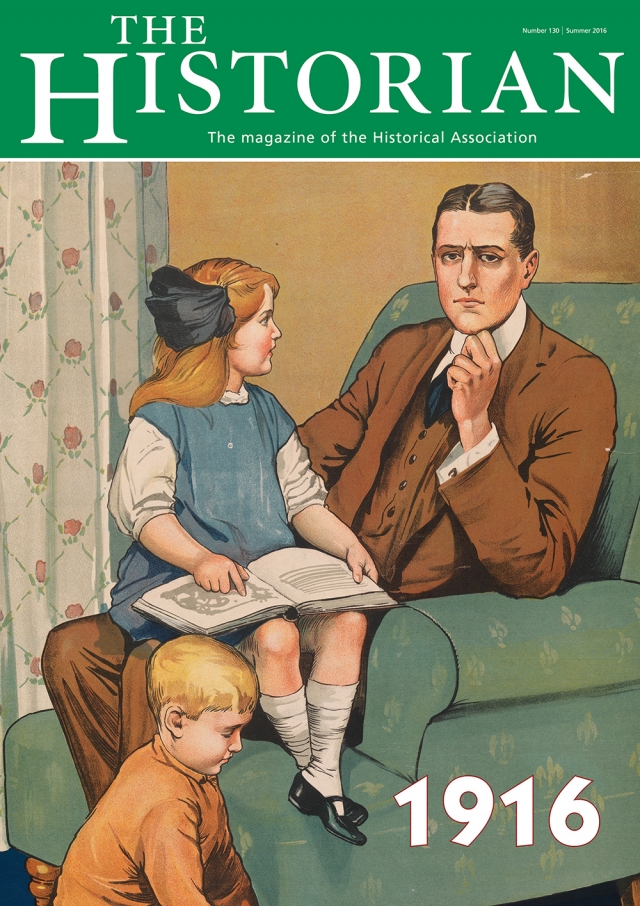The Historian 130: Out now
Publication News

1916
The origins of this edition of The Historian lie in the realisation that 1916 was a huge landmark in the course of the First World War. The first great campaign of Kitchener’s ‘new Army’ was to take place on the Somme, in July 1916, and was to break through the German lines and end the stalemate of the Western Front. As we all know that didn’t happen, and the Battle of the Somme dragged on with little progress until it was finally abandoned in November 1916. Since we thought events on the Somme would figure highly in commemorations during this summer, they are not central to this issue.
What we did think was that 1916 was the opportune time to look at events other than the Somme, to build up a picture of the impact of the war, both on the Home Front and around the world. John Beckett explores the impact of two years of war on the Home Front, while Caroline Smith discusses the impact on one small part of Britain – the isle of Man, which was used as a safe place of internment for ‘enemy aliens’ rounded up throughout the country.
But what was the impact of the war on the economy, and especially the successful tourist trade? Richard Pullen, of the Friends of the Lincoln Tank investigates the part played by engineering firms in that well-known industrial town of Lincoln in the successful development of the tank, and its impact on the battlefield. But we must not forget that the First World War was a world war. We feature articles on the German mission to Kabul – an ultimately unsuccessful attempt to spread the war to Afghanistan and india via the north West Frontier – and the expedition by the Armoured Car division to Russia and the Eastern Front in 1916 in an attempt to bolster a faltering ally. We could have run features on the last great naval battle of the war at Jutland, or the war in East Africa, italy, Salonika or the Middle East. The omissions remind us just how widely the battlefields spread across the globe. But our main article features the other major conflict on the Western Front in 1916: the Battle of Verdun, perhaps the longest, bloodiest encounter of the whole war where both the French and German armies suffered innumerable casualties for little or no gain.
Reflecting on these articles brought to mind the bitter debates over the anti-war novels published in the 1920s and 1930s such as All Quiet on the Western Front , and, more recently, films like Oh! What a Lovely War. These, and the current discussions about how such an event as the First World War should be commemorated 100 years later remind us of the sacrifices made by millions of people – mostly young men – who proudly joined up to ‘do their bit’. There was a profound short-term impact, but what of the longer term? Was Chamberlain’s reluctance to stand up to Hitler, as some saw it, a direct consequence of the way he perceived the First World War? And is the current ‘peace’ movement a reflection of the way we perceive events 100 years ago? They say that those who don’t learn from history are doomed to repeat it – let’s hope that our view of events 100 years ago helps us to make sensible choices today.
Access this edition of the Historian here...

